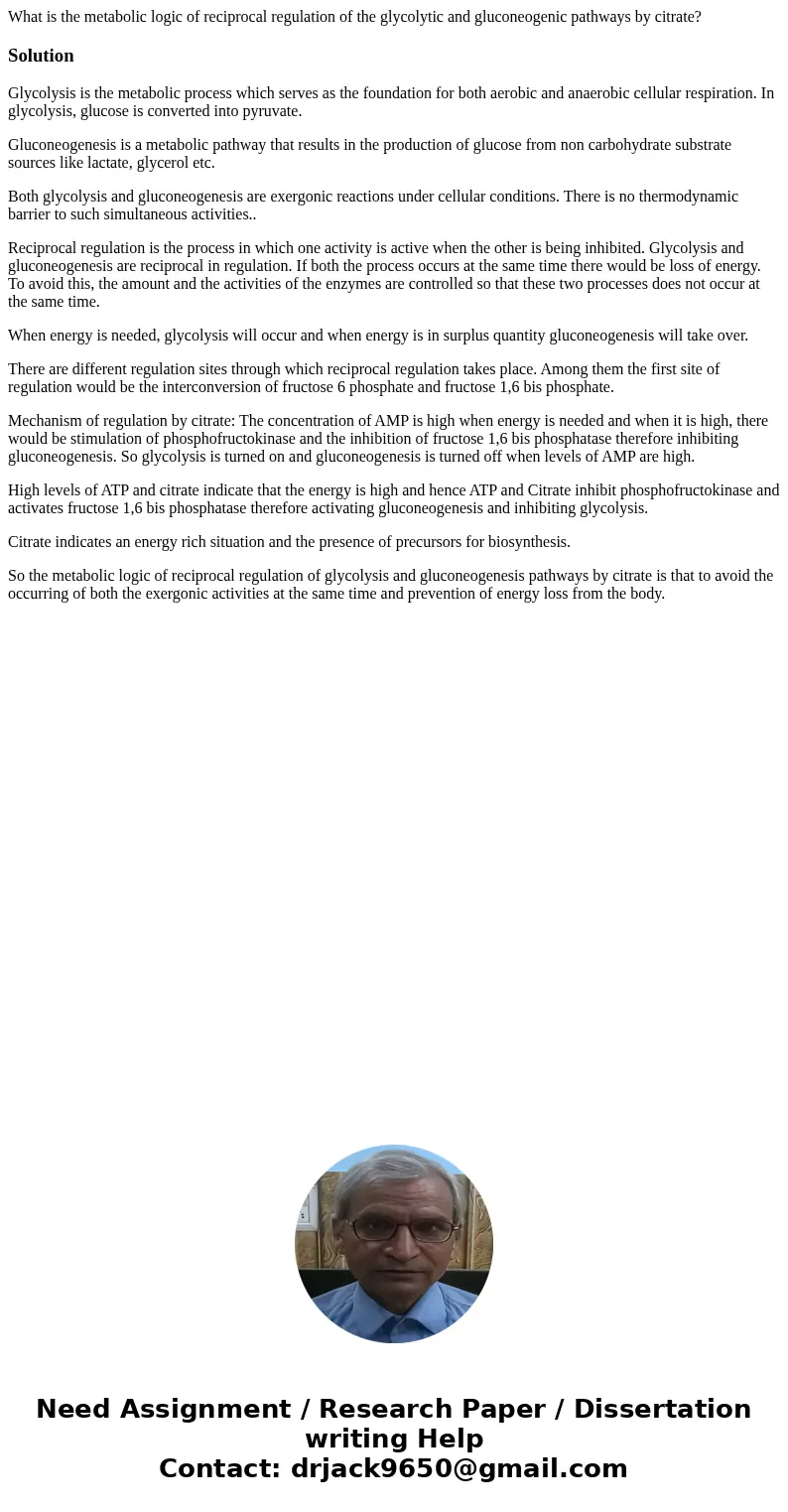What is the metabolic logic of reciprocal regulation of the
What is the metabolic logic of reciprocal regulation of the glycolytic and gluconeogenic pathways by citrate?
Solution
Glycolysis is the metabolic process which serves as the foundation for both aerobic and anaerobic cellular respiration. In glycolysis, glucose is converted into pyruvate.
Gluconeogenesis is a metabolic pathway that results in the production of glucose from non carbohydrate substrate sources like lactate, glycerol etc.
Both glycolysis and gluconeogenesis are exergonic reactions under cellular conditions. There is no thermodynamic barrier to such simultaneous activities..
Reciprocal regulation is the process in which one activity is active when the other is being inhibited. Glycolysis and gluconeogenesis are reciprocal in regulation. If both the process occurs at the same time there would be loss of energy. To avoid this, the amount and the activities of the enzymes are controlled so that these two processes does not occur at the same time.
When energy is needed, glycolysis will occur and when energy is in surplus quantity gluconeogenesis will take over.
There are different regulation sites through which reciprocal regulation takes place. Among them the first site of regulation would be the interconversion of fructose 6 phosphate and fructose 1,6 bis phosphate.
Mechanism of regulation by citrate: The concentration of AMP is high when energy is needed and when it is high, there would be stimulation of phosphofructokinase and the inhibition of fructose 1,6 bis phosphatase therefore inhibiting gluconeogenesis. So glycolysis is turned on and gluconeogenesis is turned off when levels of AMP are high.
High levels of ATP and citrate indicate that the energy is high and hence ATP and Citrate inhibit phosphofructokinase and activates fructose 1,6 bis phosphatase therefore activating gluconeogenesis and inhibiting glycolysis.
Citrate indicates an energy rich situation and the presence of precursors for biosynthesis.
So the metabolic logic of reciprocal regulation of glycolysis and gluconeogenesis pathways by citrate is that to avoid the occurring of both the exergonic activities at the same time and prevention of energy loss from the body.

 Homework Sourse
Homework Sourse